CESA

Exhibition ‘Deconstructing colonialism, Decolonising the imagination’ on display at the National Museum of Ethnology until November 2, 2025
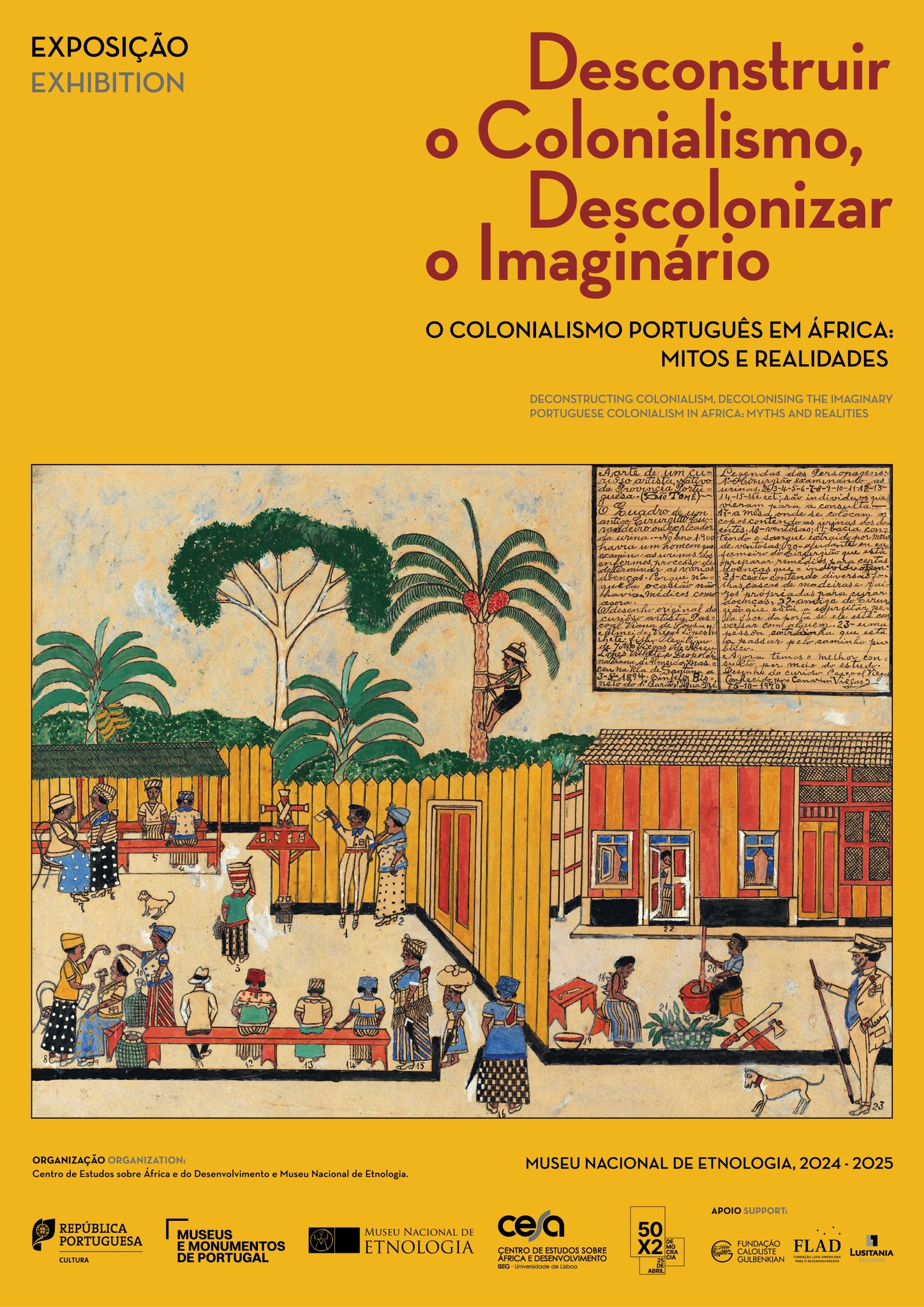
The CEsA – Centre for African and Development Studies and the National Museum of Ethnology in Lisbon invite you to a profound reflection and deconstruction of the myths surrounding Portuguese colonialism in Africa during the 19th and 20th centuries. This initiative aims to renew knowledge on the colonial question through a visit to the exhibition Deconstructing Colonialism, Decolonising the Imagination. Portuguese Colonialism in Africa: Myths and Realities, inaugurated on October 29, 2024, and open to the public until November 2, 2025, in the largest temporary exhibition hall of the National Museum of Ethnology (Avenida da Ilha da Madeira, 1400-203 Lisbon).
The project was conceived and coordinated by CEsA researcher and historian Isabel Castro Henriques to commemorate the 50th anniversary of the 25th of April, emphasising the importance of understanding the past to build a more inclusive future. It is co-organised by CEsA and the National Museum of Ethnology, with the support of the 50 Years of the 25th of April Commemorative Commission.
The exhibition is structured around two central themes:
- The power of historical narrative, which draws on research conducted by approximately 30 researchers and contributions from iconographic materials provided by Portuguese and foreign institutions. It combines text and imagery to give voice to historical knowledge.
- The voices of African cultures, presented through 139 works of art that showcase the material evidence of African thought and cultures, challenging the stereotypes perpetuated by colonial ideology. This second theme includes a selection of pieces from the National Museum of Ethnology’s collections, items on loan from the Calouste Gulbenkian Foundation, and collections by Francisco Capelo, Lívio de Morais, Hilaire Balu Kuyangiko, and Mónica de Miranda.
The Executive Committee of the exhibition is chaired by Isabel Castro Henriques and includes Inocência Mata, Joana Pereira Leite, João Moreira da Silva, Luca Fazzini, and Mariana Castro Henriques. Its Scientific Committee, also chaired by Isabel Castro Henriques, comprises 20 members, including António Pinto Ribeiro, Aurora Almada Santos, Elsa Peralta, Isabel do Carmo, and José Neves.
Parallel Programme
The exhibition is accompanied by an extensive parallel programme, including:
- A Cinema and Decolonisation Cycle, with screenings at the ISEG and the National Museum of Ethnology;
- A travelling exhibition to schools and cultural centres in Portugal, as well as Portuguese-speaking regions in Africa and Brazil;
- A series of talks at the National Museum of Ethnology under the title Deconstructing Racism, Decolonising the Museum, Rethinking Knowledge, alongside scientific conferences and colloquia.
The exhibition is complemented by a book of the same name, published by Edições Colibri. In its 344 pages, the approximately 30 researchers involved in this project delve into the various themes addressed.
Read more:
Exhibition on colonialism at the National Museum of Ethnology (ISEG website)
Deconstructing Colonialism, Decolonising Imaginary (Edições Colibri website)
Author: CEsA Communication (comunicacao@cesa.iseg.ulisboa.pt) with information from the Communications team of the National Museum of Ethnology
Image: CEsA/Reproduction
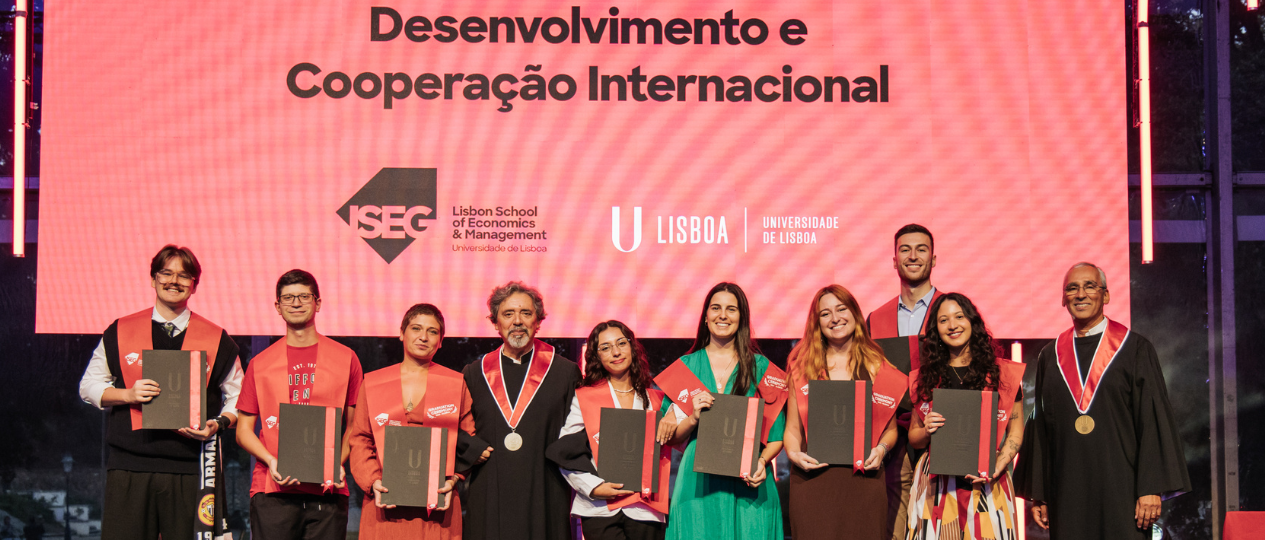
ISEG’s new Masters in Development and International Cooperation celebrate academic achievement at Graduation Ceremony
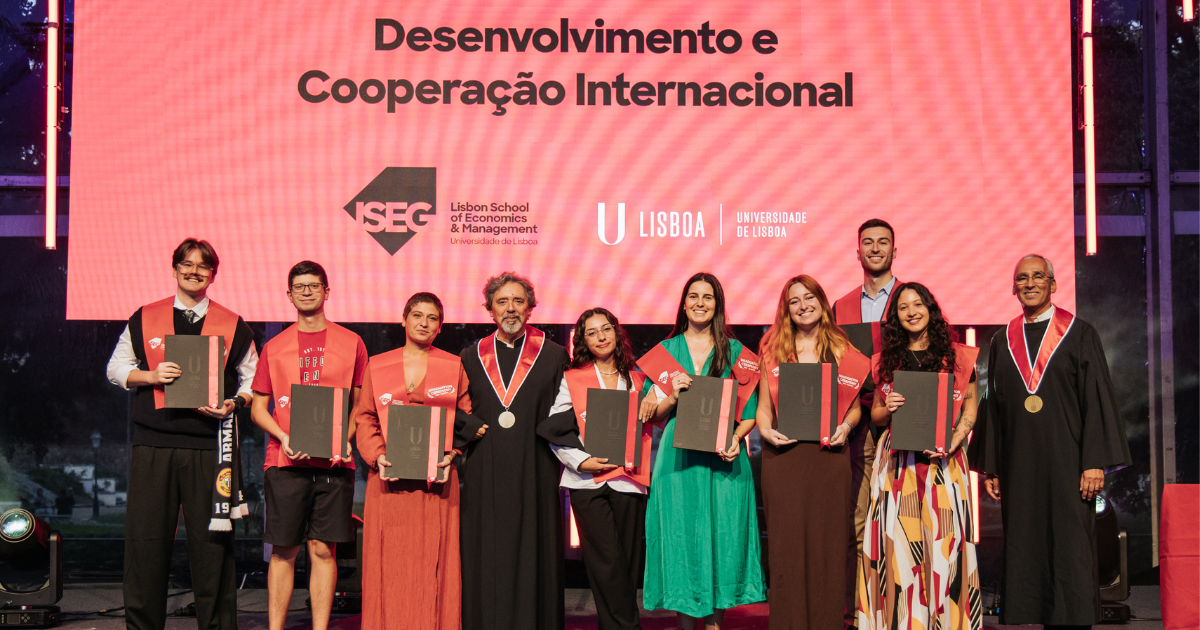
CEsA congratulates all graduates in 2024 of the Master’s in Development and International Cooperation (MDCI/ISEG/ULisboa) and the PhD Programme in Development Studies (PDED/ISA, ICS, IGOT and ISEG/ULisboa) from ISEG – Lisbon School of Economics and Management. CEsA (CSG/ISEG/ULisboa) is part of to the Scientific and Pedagogical Committee of the PDED and MDCI, supporting lectures of curricular units, organization of seminars and academic events, and supervising students’ final papers and theses, framing them in the research lines of the Centre.
The Graduation Ceremony for the Masters and PhDs was held on September 26, 2024, at Pátio das Francesinhas, on the ISEG campus, in Lisbon. The end of the study cycle was celebrated with a speech by President João Duque, with the delivery of the certificate of completion, and with a concert by Tuna Económicas.
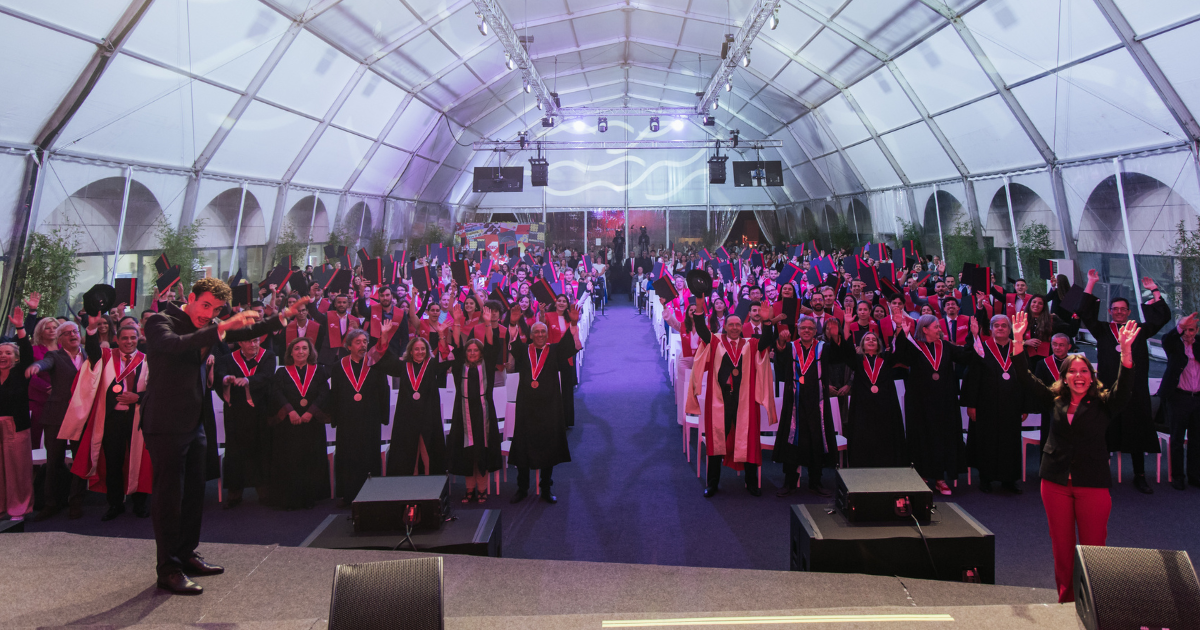
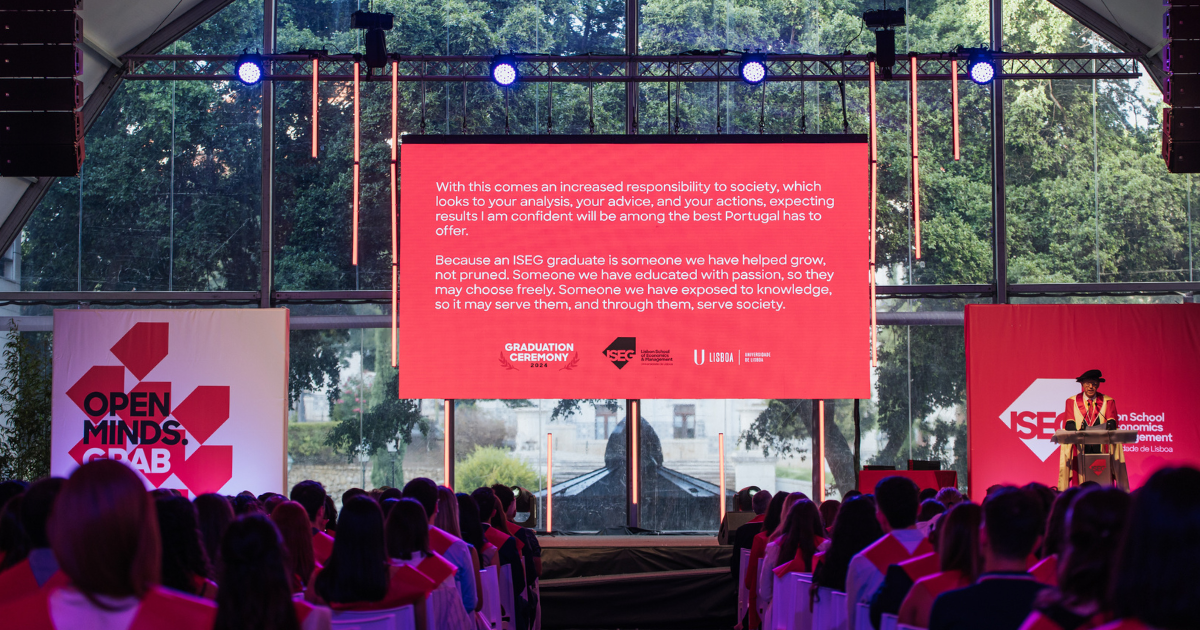
The Master’s graduates in Development and International Cooperation are (click on the names to access the master’s thesis): Américo Azevedo, Ana Carolina de Andrade, Ana Luísa Soares, Ana Maltinha, Ana Sofia Dinis, Andreia Pessoa, Arthur Hartz, Beatriz Martins, Bruno Feder, Carla Gomes, Carolina Fonseca, Catarina Henriques, Diogo Fernandes, Francisca Coelho, Izabella Aguiar, Joana Bastos, João Oliveira, João Leite, Juliana Soares, Lorraine Silva, Luiza Oliveira, Margarida Falcão, Marianela Camacho, Mila Dezan, Raquel Carvalho and Sara Martins.
The PhD graduates in Development Studies are (click on the names to access the doctoral thesis): Ana Luísa Silva, Cleuber Silva, Paulo Francisco and Yasser Dadá.
See the photos of the ISEG Graduation Ceremony for the Masters and PhDs 2024 on Flickr (click here).
The 2023 Graduation Ceremony can be watched below and on ISEG’s YouTube channel (click here).
Read/See more:
2024 Graduation Ceremony – Masters and PhDs – YouTube ISEG
2024 Graduation Ceremony – Masters and PhDs – Flickr Marketing ISEG
CEsA welcomes the 2024-2025 academic year with a Film Debate session on 18 September
Masters in Development and International Cooperation – ISEG
PhD Programme in Development Studies – ISEG/ISA/ICS/IGOT
Author: CEsA Communications (comunicacao@cesa.iseg.ulisboa.pt)
Images: Reproduction ISEG
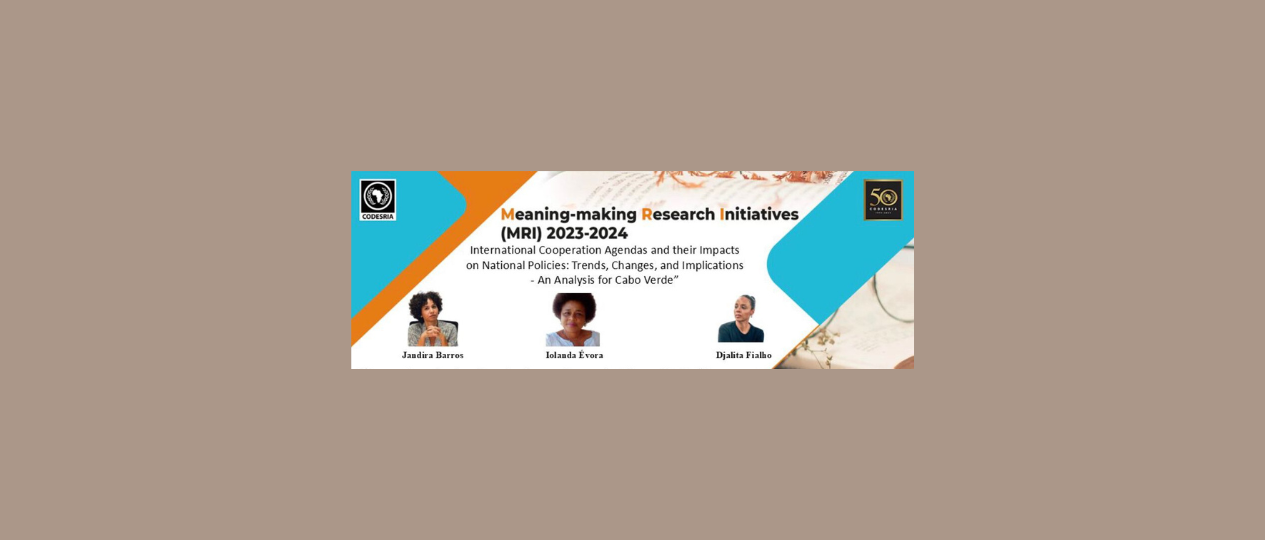
CEsA researcher is part of a project on the impact of international cooperation agendas on public policies in Cape Verde, awarded with funding from CODESRIA
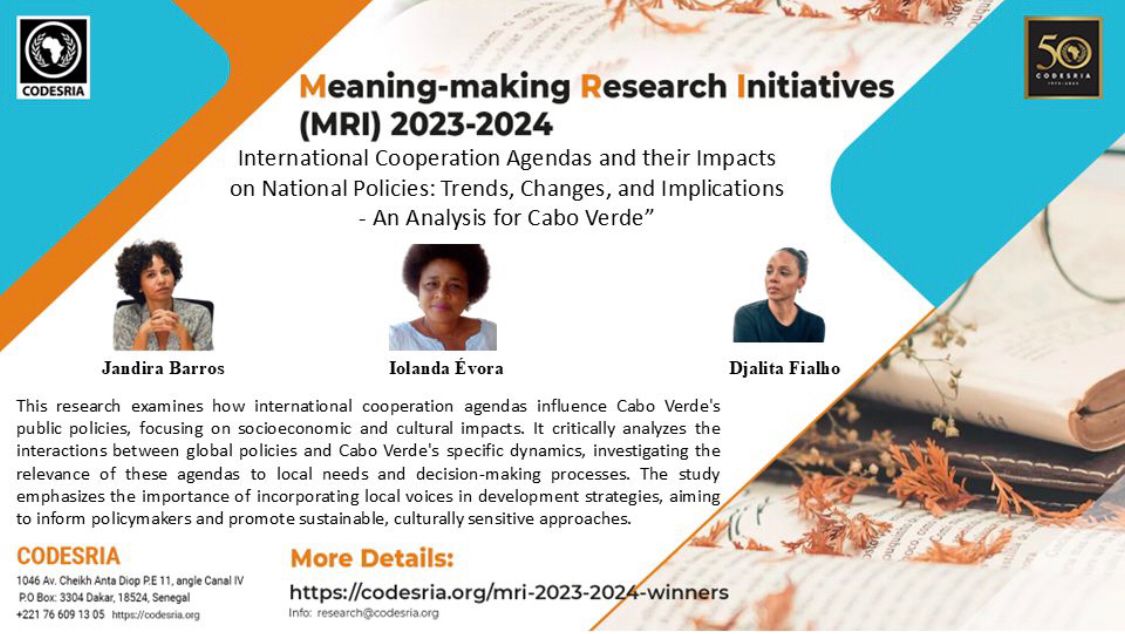
Iolanda Évora (ISEG-ULisboa, Portugal), a PhD in social psychology and researcher at CEsA, will be part of the project “International Cooperation Agendas and their Impacts on National Policies:Trends, Changes, and Implications – An Analysis for Cabo Verde”, coordinated by researcher Djalita Fialho (Pedro Pires Institute for Leadership, Cape Verde) and in collaboration with researcher Jandira Barros (Social3, Cape Verde).
This research project on the impact of international cooperation agendas on public policies in Cape Verde was selected in the 2023/2024 Meaning-making Research Initiatives (MRI) competition to be awarded funding from CODESRIA – Council for the Development of Social Science Research in Africa (see the list of winning projects at this link). According to the letter sent by the Council, the research proposal was chosen from over 400 applications for its quality, as well as for its “potential to significantly contribute to and deepen our knowledge of African realities”.
Project summary:
This research analyzes the impact of international cooperation agendas on Cabo Verde’s public policies, highlighting socioeconomic and cultural aspects. Using an approach that combines public policy analysis with a critical reflection on hegemonic development approaches in Africa, it explores the interactions between global policies and the specific dynamics of Cabo Verde. The study investigates the effects of these international agendas on social dynamics and national political decision-making processes. The central research questions relate to how these agendas are adopted in Cabo Verde and their relevance to local needs, crises, and endogenous perspectives on social well-being. The methodology involves analyzing cooperation documents, government policies, NGO plans, and interviews with civil society members. This comprehensive approach aims to uncover the challenges Cabo Verde faces in international cooperation and emphasizes the importance of local voices in shaping development trajectories. The practical importance of the research lies in informing policymakers and international agencies about the need for inclusive and contextually relevant development approaches. With a budget of USD 25,000 over 16 months, the study promotes sustainable and culturally sensitive development strategies aligned with local aspirations.
Author: CEsA Communication (comunicacao@cesa.iseg.ulisboa.pt)
Images: CEsA/Reproduction
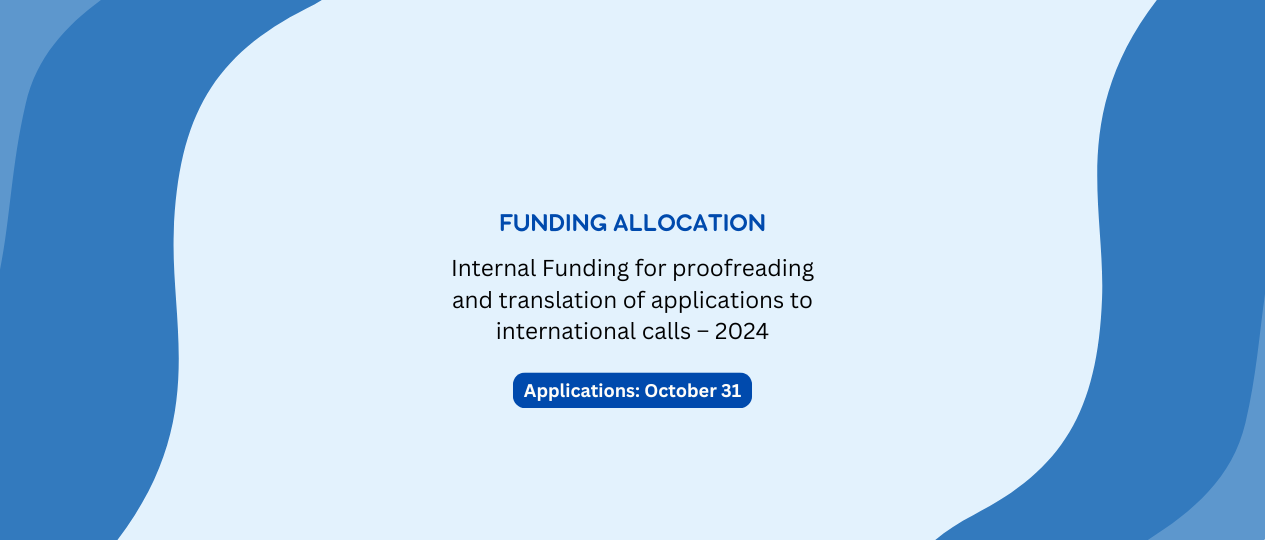
CEsA Internal Funding for proofreading and translation of applications to international calls – 2024
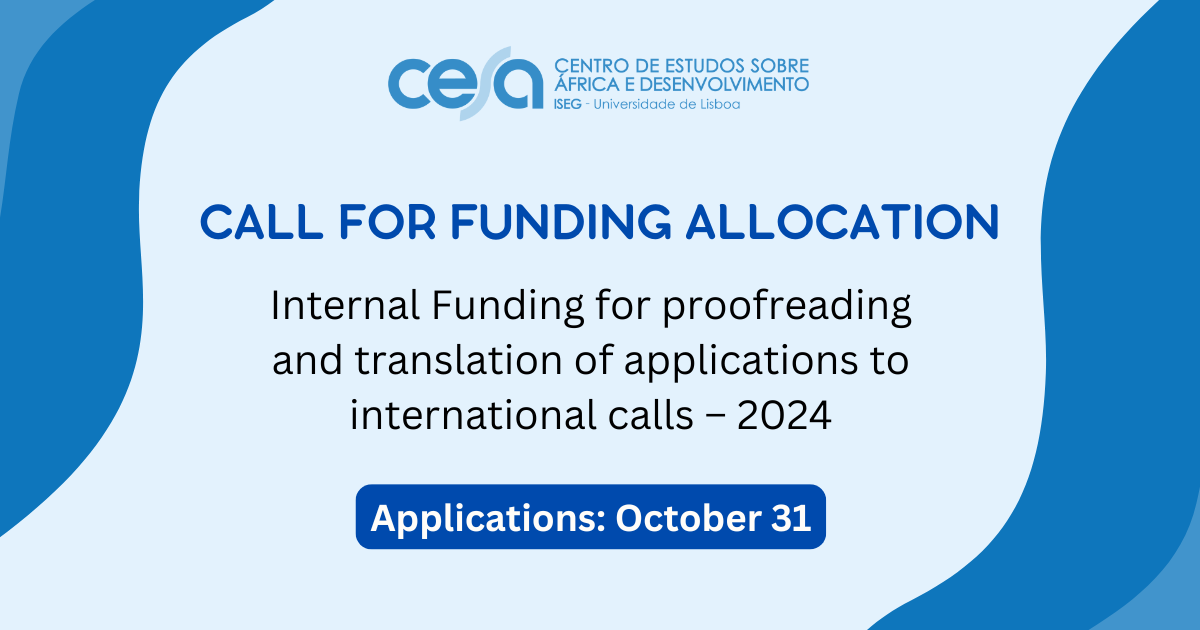
CALL FOR FUNDING ALLOCATION
CEsA Internal Funding for proofreading and translation of applications to international calls – 2024
CEsA is opening an internal call for funding allocation to support the proofreading and translation of applications to be submitted to international calls. Up to €500 will be awarded per application/proposal.
The main goal of this initiative is to support the proofreading and translation of applications carried out by CEsA researchers to international calls.
Requests for funding must be submitted via email, sent to cesa@cesa.iseg.ulisboa.pt, with a copy to comunicacao@cesa.iseg.ulisboa.pt, by October 31, 2024.
Any questions should be sent via email to the same address.
Author: CEsA Communication (comunicacao@cesa.iseg.ulisboa.pt)
Images: CEsA/Reproduction
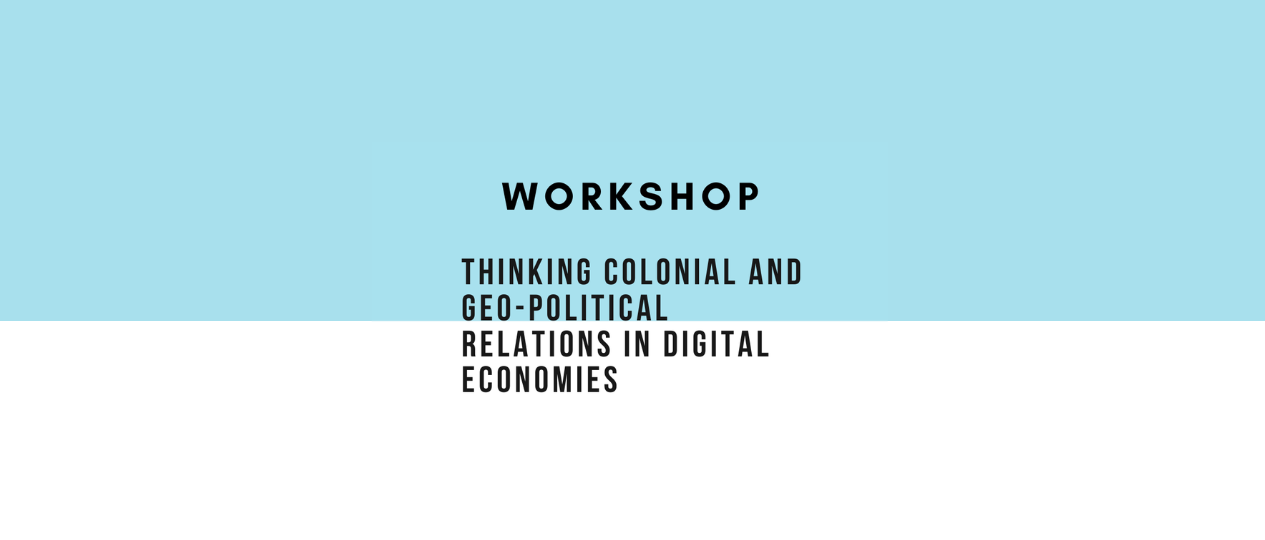
CEsA and SOCIUS co-organize workshop on Digital Economies with free entry
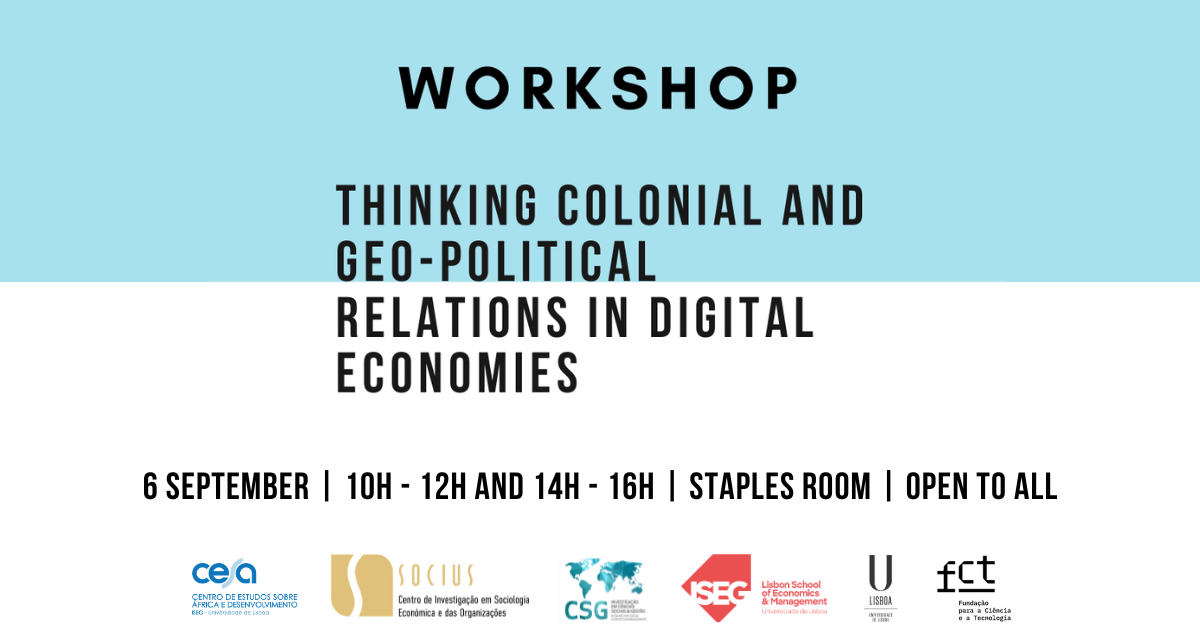
📢 ❗ Attention: This workshop will take place in the Staples Room (Quelhas Building, 3rd floor) — not in the Delta Room as previously announced. ❗📢
CEsA – Centre for African and Development Studies and SOCIUS – Research Centre in Economic and Organizational Sociology, both research units of CSG – Research in Social Sciences and Management (ISEG-ULisboa), invite you to the Workshop “Thinking Colonial and Geo-Political Relations in Digital Economies: Mobile Financial Technology in Everyday Life,” which will take place on September 6, 2024, from 10:00 AM to 12:00 PM and from 2:00 PM to 4:00 PM, in Staples Room at ISEG (3rd Floor, Quelhas Building).
Digital Economies are growing globally and being promoted as sites of development of financial inclusion processes through digital technologies and mobile phones. Digital financial applications, including microfinance, but also cryptocurrencies, are expanding in Africa, side by side with the entrepreneurial use of social media. These technologies become the virtual and material sites of marketing of digital technologies as panaceas to pressing livelihood, financial management and subsistence problems. Often, it is through these pathways that digital economic media become deeply embedded in everyday personal, and social lives, influencing how people relate to each other, make a living, and become part of global systems that are negotiated within particular transnational historical, technological, political, social and cultural relations.
The aim of this workshop is to foster the exchange between researchers studying the power, economic, commercial, material, cultural, ontological, and social relations being forged into the development of digital economic media, as well as the ways in which these are operationalized and used in daily life, with the goal of jointly reflecting on new, collaborative and creative pathways for research and discussions.
Some central questions intended for discussion include:
- What do current narratives on digital financial inclusion in low-income settings tell us about the change and reproduction of historical, colonial and geopolitical power relationships?
- How do these relations appear in mundane aspects of people’s lives in different geographies? How are they negotiated?
- What are the symbolic dimensions of mobile phones, financial technology and applications, at the local level? How does this vary geographically and politically?
- Where is knowledge about these subjects being produced?
The workshop is free to attend, with no prior registration required. It is coordinated by SOCIUS researcher Inês Faria and is part of the research project “Digital Microfinance and Financial Ecologies: Gender and Entrepreneurship in Maputo and Chibuto.”
Participants presenting their work include invited speakers Euclides Gonçalves (Kaleidoscope) and Serena Natile (University of Warwick), CEsA researchers Luís Bernardo and Diogo Maia, SOCIUS researcher and Ph.D. candidate in Economic and Organizational Sociology Eduardo Ferracioli, and Political Economy Ph.D. candidates Henrique Pinto Coelho, Felipe Rodrigues, and Thiago França.
Check out below the papers that will be presented by CEsA researchers
Title: The Impact of FDI on Economic Growth and Inequality in Mozambique: An analysis of the first two decades of the 21st century
 Author: Diogo Maia
Author: Diogo Maia
Abstract: This study conducts a comprehensive analysis of the relationship between Foreign Direct Investment (FDI), economic growth, and inequality in Mozambique during the first two decades of the 21st century. The primary objective is to determine whether FDI has contributed to economic growth and to assess whether this growth has led to greater equality or exacerbated inequality. The research methodology involved a data analysis framework, utilizing microdata from Family Budget Surveys in conjunction with macrodata from diverse sources to quantitatively assess the effects of FDI on the Mozambican economy.
The results indicate that while FDI has been a significant driver of economic growth, particularly in the natural resource sectors, this growth has been highly concentrated and insufficiently inclusive, leading to a widening of regional and social inequalities. The influx of FDI has primarily targeted capital-intensive sectors, with the resultant economic benefits disproportionately accruing to a narrow elite, thereby limiting broader economic development and employment generation.
Within the context of Mozambique — a nation characterized by its reliance on extractive industries and susceptibility to external economic shocks — these findings suggest that FDI-driven growth may, paradoxically, contribute to deepening existing inequalities. The study concludes that for FDI to promote more equitable and sustainable growth, strategic policies must be implemented to diversify the economy and ensure a more equitable distribution of the gains from foreign investment.
Title: Geoeconomics and Digital Competition: The Global Gateway, infrastructural power and governed interpendence beyond nation-States
 Author: Luís Bernardo
Author: Luís Bernardo
Abstract: This paper examines the digital component of the Global Gateway strategy. I mobilize the concepts of governed interdependence and infrastructural power to understand how the EU – and its current developmental avatar, Team Europe – is shifting its repertoire to suit a more competitive, if not exactly confrontational world order. Since 2021, the European Union has promoted the Global Gateway as the €300bn European move in the “global battle of offers” in infrastructure investment. This strategy aims to build “smart, clean and secure links” across systems worldwide. It is the European counterpart to the Chinese Belt and Road Initiative (BRI) and the US Build Back Better World (B3W). Importantly, the von der Leyen Commission has mobilized development cooperation resources in order to kickstart the Global Gateway: indeed, NDICI – Global Europe is the 2021-2027 EU financial envelope for development cooperation and, as it stands, it remains the world’s largest. The Global Gateway comprises five sectoral priorities: climate and energy, the digital sector, education and research, health and transport. Though there is significant overlap among each sectoral priority, the digital component is striking as it illustrates how the hybrid character of EU power, namely its material capacity to implement projects and its regulatory capacity to define how projects ought to be implemented.
In this paper, I underline the importance of business actors – mainly but not exclusively private – in the enactment and projection of geoeconomic power through the digital component of Global Gateway: if digital connectivity requires data, it also requires infrastructure, regulatory standards and governance capacity, none of which the EU as a whole or member-States and their development agencies are able to deploy independently from European business. In this sense, governed interdependence, understood as the set of strategies employed by States in their interaction with actors under their jurisdiction in order to shape relations with global markets, is potentially useful to understand where the Global Gateway is going and where it is leading the EU. Finally, this paper also discusses infrastructural power as a competitive edge in the “global battle of offers”: if the Brussels Effect applies to the Global Gateway, it would be a clear instance of infrastructural power beyond the scope of EU territorial sovereignty and thus part of the global movement towards a “new economic statecraft”. This paper discusses these issues as they relate to the digital component of the Global Gateway.
Author: CEsA Communication (comunicacao@cesa.iseg.ulisboa.pt)
Images: CEsA/Reproduction

CEsA welcomes the 2024-2025 academic year with a Film Debate session on 18 September

CEsA – the Centre for African and Development Studies (CSG/ISEG/ULisboa) will welcome the students of the Master’s in Development and International Cooperation and the 2024/2025 academic year with a Film Debate session and a screening of the documentary A Place Once Called Home on 18 September 2024 at 6 pm, in Auditorium 2 at ISEG (Lisbon, Portugal). The event is free to attend and open to the entire ISEG community, both internal and external.
After the screening of the documentary, there will be a debate with Professor Olayinka Ajala (Leeds Beckett University), Professor Susana Brissos from the Master’s in Development and International Cooperation (ISEG-ULisboa), and both CEsA researchers and PhD candidates in Development Studies, Cosmas Ba-Ana-Itenebe and Sílvia Amaral (ISEG-ULisboa).
About the documentary
A Place Once Called Home (26 min) is directed by Deji Akinpelue as part of the research project “Sustainable Agriculture in Nigeria: Understanding the Link between Conflict (and Terrorism) and Climate Change in Farmers’ Displacement and Livelihood Transformation”. The project is led by Professor Olayinka Ajala (Leeds Beckett University), Professor Taibat Lawanson (University of Lagos), Dr Joseph Ochogwu (Institute for Peace and Conflict Resolution, Nigeria), and Nathaniel Awuapila (Centre for Innovation and Research in Nigeria). The aim is to investigate the what extent certain factors – climate change, terrorism and farmer/pastoralist conflict, have contributed to forced displacements. It also seeks to understand how farming communities are transforming their livelihoods.
Synopsis
The documentary titled ‘A place once called home’ is one of Professor Ojala’s research outputs, which highlights the lived experiences of farmers, reasons for forced migration and displacement and resulting livelihood transformation in Nigeria.
Trailer
About the debate

Guest Speaker: Professor Olayinka Ajala (Leeds Beckett University). Ajala is a Senior Lecturer in Politics and International Relations at Leeds Beckett University and a Fellow of the Higher Education Academy. He holds a PhD in Politics from the University of York and a Master’s in Globalisation and Development from the Institute of Development Studies, University of Sussex.

Moderator: Professor Susana Brissos (ISEG-ULisboa). Brissos is a Visiting Assistant Professor in the Department of Economics at ISEG (University of Lisbon), and a researcher at CEsA. She completed her PhD in Development Studies, her Master’s in Development and International Cooperation, and her Bachelor’s degree in Economics at ISEG.

Speaker: PhD Candidate Cosmas Aloyie Ba-Ana-Itenebe (ISEG-ULisboa). Itenebe has a background in Political Science, an International Diploma in Humanitarian Assistance from Fordham University, USA, and a Master’s in Conflict, Governance and International Development from the University of East Anglia, UK. He is currently a PhD candidate in Development Studies at ISEG (University of Lisbon) and a researcher at CEsA (CSG/ISEG-ULisboa). His doctoral thesis explores the structural barriers and coping strategies of internally displaced persons due to the Boko Haram insurgency in Nigeria.
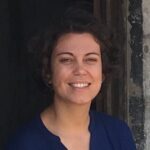
Speaker: PhD Candidate Sílvia Amaral (ISEG/ULisboa). Amaral is a PhD candidate in Development Studies at ISEG (University of Lisbon) and a research fellow at CEsA (CEsA/CSG/ISEG-ULisboa).
Author: CEsA Communication (comunicacao@cesa.iseg.ulisboa.pt)
Images: CEsA/Reproduction
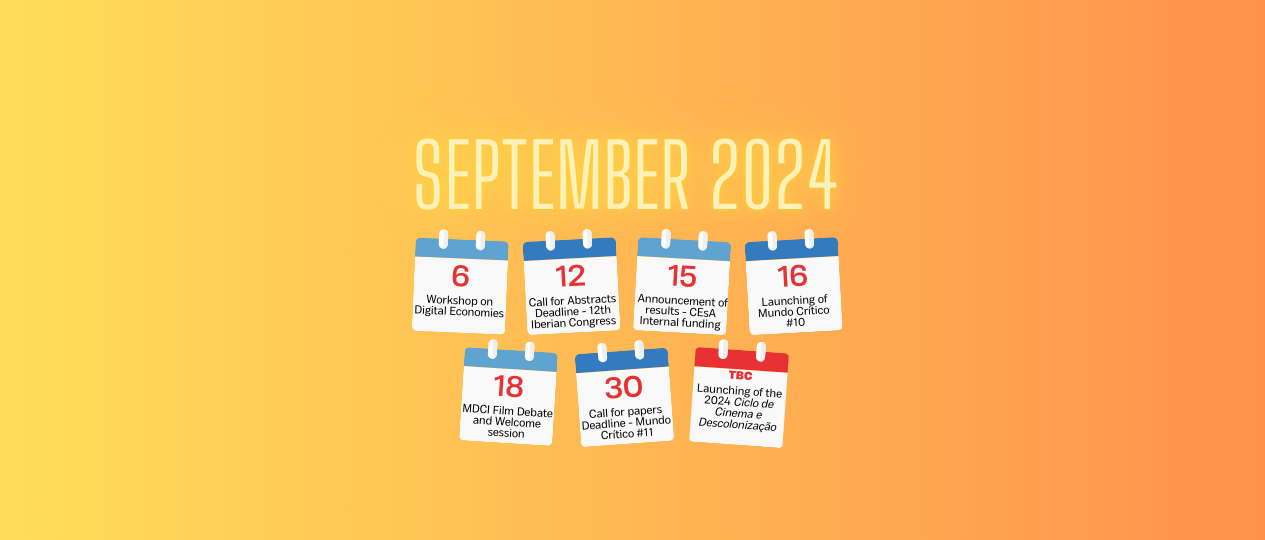
CEsA Events Calendar – September 2024
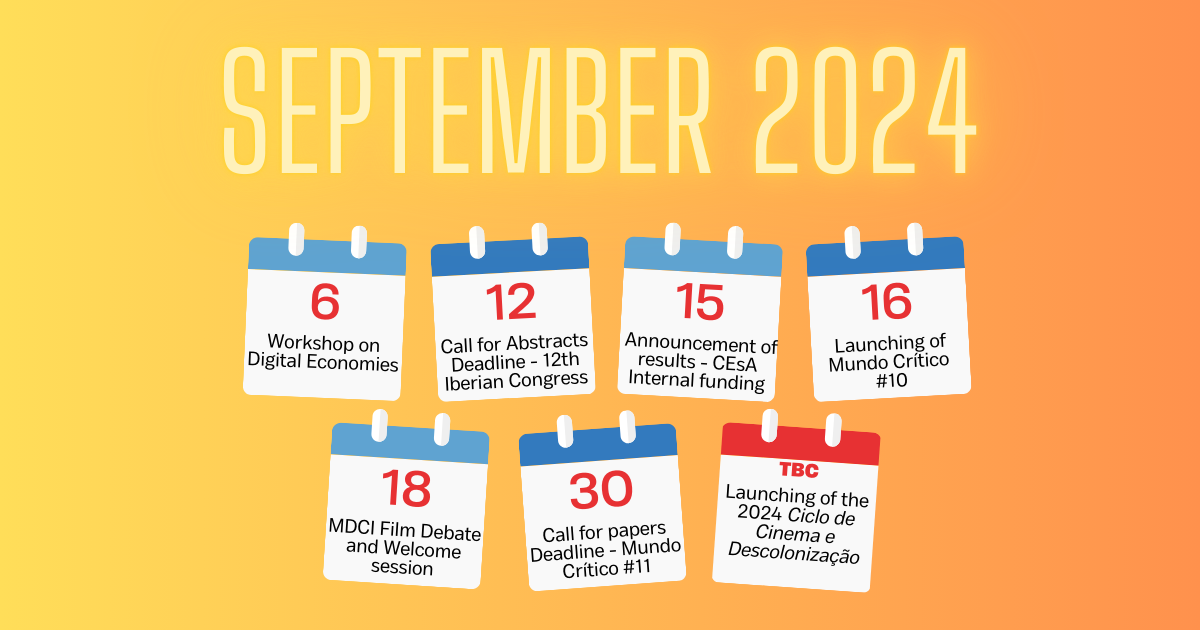
Check out CEsA events calendar for September:
📌 Workshop “Thinking Colonial and Geopolitical Relations in Digital Economies”
🗓️ September 6th (Friday), 10am-12pm e 2pm-4pm, at ISEG (Delta Room)
➕ Open to all
📌 Deadline for submission of abstract to the 12th Iberian Congress
🗓️ September 12th (Thursday)
🔗 More information: https://redestudiosafricanos.org/en/call-for-proposals-for-communications-at-ciea12-open-until-september-12-2024/
📌 Announcement of the Results of the CEsA Internal Funding for Small Research Projects
🗓️ By September 15th (Sunday)
🔗 More information coming soon on the CEsA website
📌 Launching of the Mundo Crítico #10 – “Development, Peace, and Conflicts”
🗓️ September 16th (Monday)
🔗 More information: https://mundocritico.org/
📌 MDCI Film debate and Welcome session – Screening of the documentary “A Place Once Called Home”
🗓️ September 18th (Wednesday), 6 pm, at ISEG (Auditorium 2)
➕ Open to all
🔗 More information: https://cesa.rc.iseg.ulisboa.pt/news/cesa-welcomes-the-2024-2025-academic-year-with-a-film-debate-session-on-18-september/
📌 Deadline for submission of papers to the Mundo Crítico #11 – “Women, Power, and Leadership”
🗓️ September 30th (Monday)
🔗 More information: https://mundocritico.org/2024/07/31/chamada-para-contribuicoes-mundo-critico-n-o-11-dedicada-as-mulheres-poder-e-liderancas/ (only in Portuguese)
❗To be confirmed: First session of the 2024 Ciclo de Cinema e Descolonização
Subscribe CEsA Agenda and stay up to date with all the news: https://ulisboa.us2.list-manage.com/subscribe?u=bfa3f17288a670b7ed9f4ccc8&id=702c1209fb
Author: CEsA Communication (comunicacao@cesa.iseg.ulisboa.pt)
Images: CEsA/Reproduction
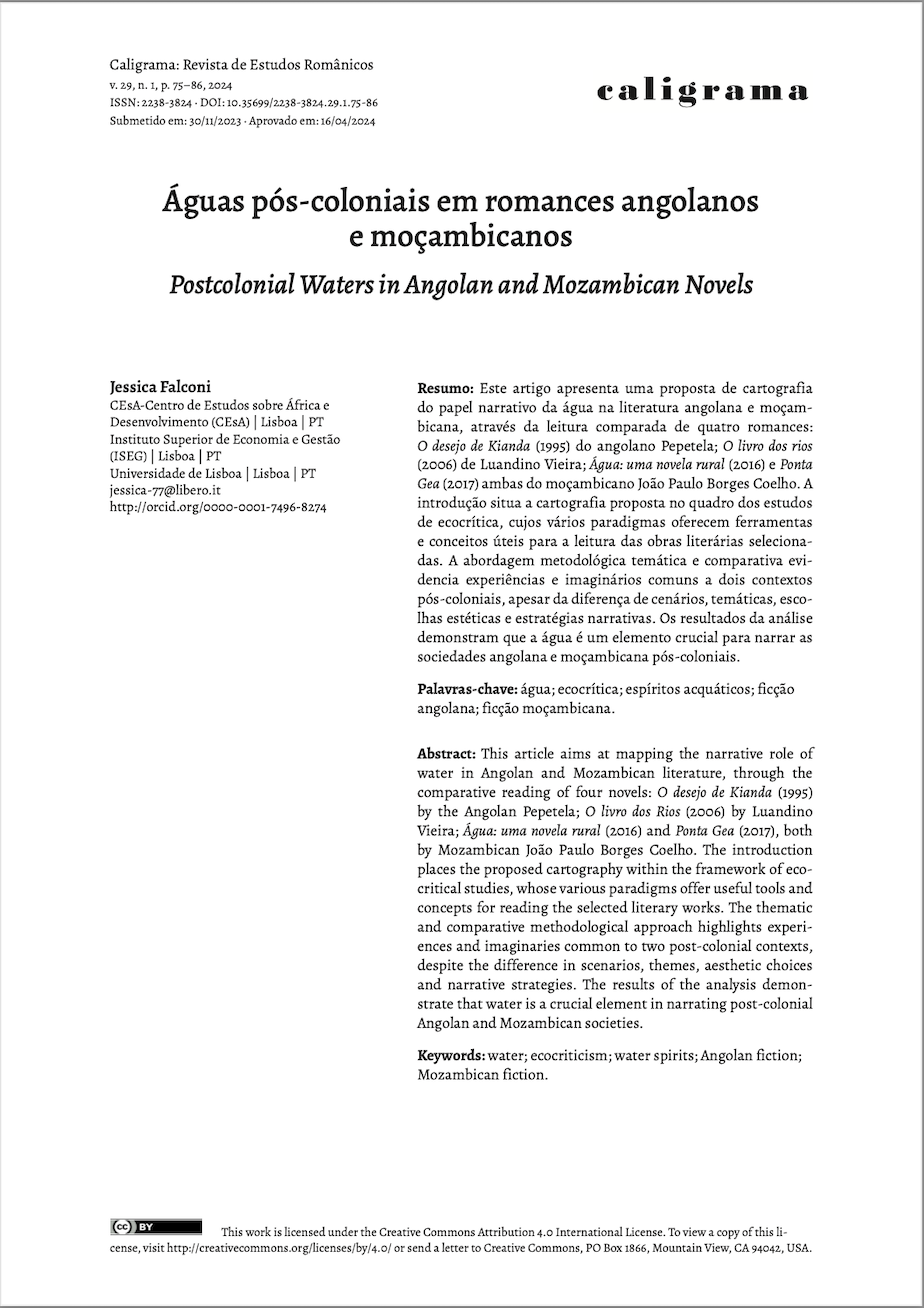
Águas Pós-coloniais em Romances Angolanos e Moçambicanos
Abstract:
This article aims at mapping the narrative role of water in Angolan and Mozambican literature, through the comparative reading of four novels: O desejo de Kianda (1995) by the Angolan Pepetela; O livro dos Rios (2006) by Luandino Vieira; Água: uma novela rural (2016) and Ponta Gea (2017), both by Mozambican João Paulo Borges Coelho. The introduction places the proposed cartography within the framework of ecocritical studies, whose various paradigms offer useful tools and concepts for reading the selected literary works. The thematic and comparative methodological approach highlights experiences and imaginaries common to two post-colonial contexts, despite the difference in scenarios, themes, aesthetic choices and narrative strategies. The results of the analysis demonstrate that water is a crucial element in narrating post-colonial Angolan and Mozambican societies.
Cite this article:
Falconi, Jessica (2024). “Águas pós-coloniais em romances angolanos e moçambicanos”. Caligrama: Revista de Estudos Românicos, 29(1):75-86
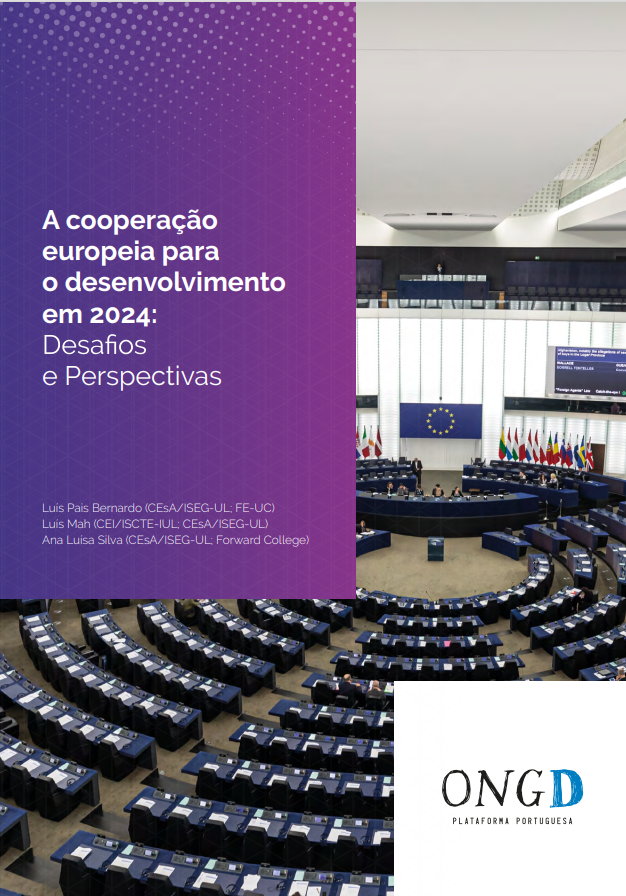
A Cooperação Europeia para o Desenvolvimento em 2024: Desafios e perspectivas
Abstract:
In a year of European Parliament (EP) elections, and amid growing global uncertainty, the study “European Development Cooperation in 2024: Challenges and Perspectives” was created following the publication “The Future of International Development Cooperation: Fragmentation, Adaptation, and Innovation in a Changing World” (2021). In this study, we outline the latest developments in the European Union’s (EU) international development cooperation (IDC) at the institutional and policy levels, highlighting the role of the European Parliament. We also examine the relationship between Portuguese IDC and its European counterpart, emphasizing the centrality of partner countries in the Portuguese-Speaking African Countries and Timor-Leste (PALOP-TL) and the role of civil society. We conclude with reflections on the implications for European cooperation, Portuguese cooperation, and civil society given the increasing importance of geopolitics in the current global context, the political-institutional transformations observed in European IDC, and the likely configuration of the EP for the new legislature, where it is expected that political forces opposing development cooperation will be strengthened.
Cite this ebook:
Bernardo, Luís Pais, Luís Mah e Ana Luísa Silva (2024). A cooperação europeia para o desenvolvimento em 2024 : desafios e perspectivas. Lisboa: Plataforma Portuguesa das ONGD
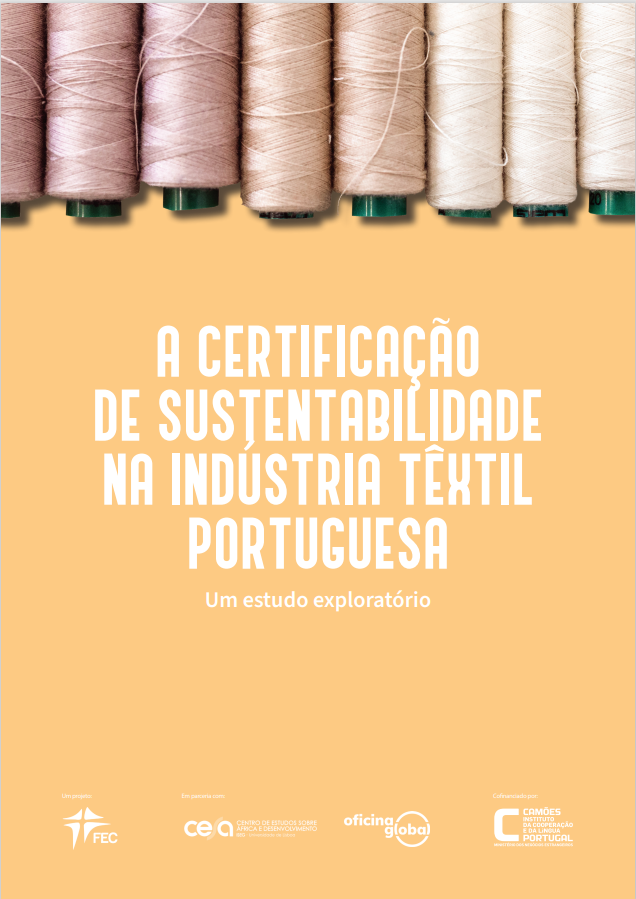
A certificação de sustentabilidade na Indústria Têxtil Portuguesa: um estudo exploratório
Abstract:
This study analyzes sustainability certification in the Portuguese textile industry. The main objective is to map the current landscape of sustainable practices adopted by this crucial sector of the Portuguese economy, evaluating the implications, challenges, and benefits of certification in the contemporary economic and environmental context. We aim to understand how sustainability certifications can serve as a strategic tool to boost the competitiveness of Portuguese companies in the global market, responding to the growing demand for ethical and environmentally conscious products.
The methodology employed in this study involves a review of the existing literature on sustainability in the textile industry. Essentially, it is a hybrid and comparative analysis, utilizing the complete universe of certified Portuguese textile companies. While this focused approach does not answer all questions, it allows this study to take a small step towards research committed to supporting companies that, despite clear risks and costs, choose to invest in sustainability. It also addresses the societal pressure that can and should be exerted on legislators to implement stronger regulatory frameworks and on companies that decide not to invest in sustainability.
This is a small step we hope will lead to further research efforts. We offer a perspective on the role of sustainability certification as a competitive differentiator for the Portuguese textile industry. The study emphasizes the growing importance of sustainability as a selection criterion for consumers and international business partners, reinforcing the need for Portuguese companies to continue investing in sustainable practices and obtaining certifications that validate their efforts. The study also presents and discusses recommendations for future policies and strategies, aiming to strengthen Portugal’s position as a leader in sustainable textile production on the global stage.
Cite this ebook:
Bernardo, Luís Pais (2024). A certificação de sustentabilidade na Indústria Têxtil Portuguesa : um estudo exploratório. Lisboa: Oficina Global.





